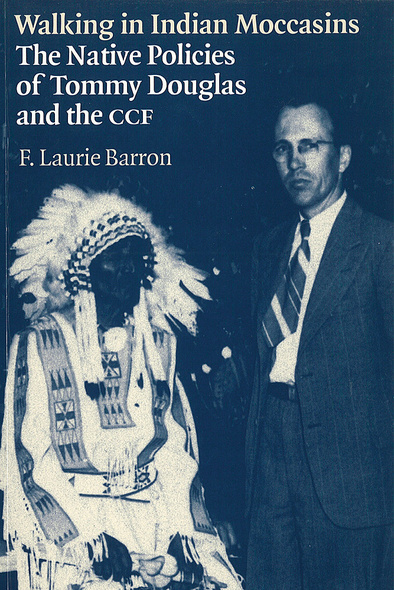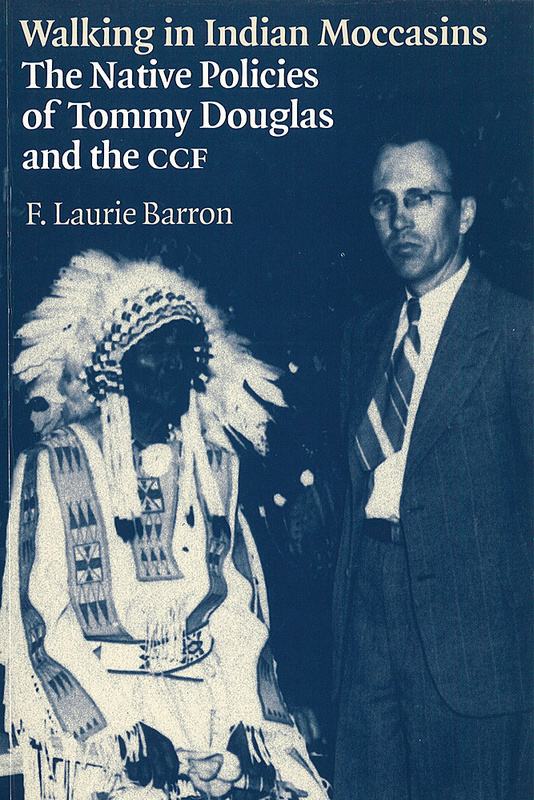Our shopping cart is currently down. To place an order, please contact our distributor, UTP Distribution, directly at utpbooks@utpress.utoronto.ca.

Walking in Indian Moccasins
The Native Policies of Tommy Douglas and the CCF
In 1944, Saskatchewan elected the first socialist government in North America. Led by the dynamic Tommy Douglas, the Co-operative Commonwealth Federation vowed to create a society based on principles of cooperation rather than competition and to make themselves the instrument of social and economic justice for the oppressed. They were also the first government in Canada to make a firm commitment to improving conditions for Native people and their official slogan, “Humanity First,” was understood to refer to Indian and Metis people. But was their commitment more than just an election slogan?
Walking in Indian Moccasins is the first work to offer a different view of the Douglas government: their policies, their applications, and their shortcomings. Much more than that, however, it is a careful account of the development of Indian and Metis people in Saskatchewan in the post-war period. The goal of the CCF was to “walk in Indian moccasins,” promising a degree of empathy with Native society in bringing about reforms. In reality, this aim was not always honoured in practice and essentially meant integration for the Indians of the province and total assimilation for the Metis.
Has the merit of pulling together a wide and varied body of material and giving us the first comprehensive portrait of a neglected aspect of the Saskatchewan CCF's reform agenda. It is well worth reading by anyone interested in the history of government Indian and Metis policy in Canada.
An important contribution to our understanding of Saskatchewan's Aboriginal policies under CCF premier Tommy Douglas ... Walking in Indian Moccasins is especially valuable due to its focus on provincial government Aboriginal policy in the recent past. It provides a model for future studies of both Alberta's and Manitoba's Aboriginal policies immediately after the second World War ... the book greatly advances our understanding of the Native Peoples of the prairie provinces in the twentieth century.
Preface
Acknowledgments
Introduction
1 Historical Setting
2 The CCF and the Evolution of Métis Policy
3 Provincial Indian Policy
4 Citizenship Issues
5 The Saskatchewan Far North: The Last Frontier
6 Opposition to Native Reform
7 Assessment
Notes
Index






